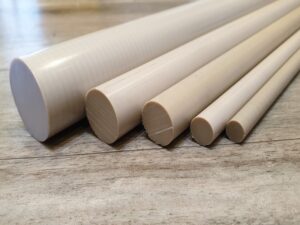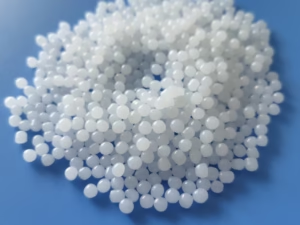Description
Polyamide (PA): The Versatile Plastic Transforming Industries
Polyamide, more commonly known as Nylon, is a family of synthetic polymers characterized by the presence of amide bonds (-CO-NH-) in their main chain. This versatile material has revolutionized various industries since its invention in the 1930s, offering a unique combination of strength, durability, and flexibility. From clothing and textiles to automotive parts and electronics, polyamide has cemented its place as an indispensable component in modern manufacturing.
A Diverse Family of Polymers:
While the term “Nylon” is widely recognized, it’s important to understand that Polyamide encompasses a diverse range of variations, each possessing distinct properties tailored for specific applications. These variations are typically designated by numbers, such as PA6, PA66, PA11, and PA12, which indicate the number of carbon atoms in the diamine and dicarboxylic acid monomers from which they are made.
- PA6 (Nylon 6): Known for its good strength, elasticity, and ease of processing, PA6 is commonly used in textiles, films, and molded parts.
- PA66 (Nylon 66): Offering superior strength, stiffness, and heat resistance compared to PA6, PA66 finds applications in automotive parts, electrical connectors, and high-performance fibers.
- PA11 (Nylon 11) & PA12 (Nylon 12): These polyamides are derived from renewable resources and exhibit excellent chemical resistance, low moisture absorption, and dimensional stability. They are often used in pipes, tubes, and cable coatings.
Key Properties and Advantages:
The widespread adoption of polyamide stems from its impressive array of properties:
- High Strength and Durability: Polyamide exhibits exceptional tensile strength and resistance to wear and tear, making it suitable for demanding applications.
- Excellent Abrasion Resistance: Its robust nature allows it to withstand friction and rubbing, extending the lifespan of products.
- Good Chemical Resistance: Polyamide is resistant to a wide range of chemicals, including oils, solvents, and alkalis.
- High Elasticity and Flexibility: Many polyamide variations possess good elasticity, making them suitable for applications requiring flexibility and resilience.
- Thermal Stability: Certain grades of polyamide can withstand high temperatures without significant degradation.
- Easy Processing: Polyamide can be easily processed using various methods, including injection molding, extrusion, and blow molding.
Applications Across Industries:
Polyamide’s versatility has led to its extensive use in diverse industries:
- Textiles and Apparel: Nylon fibers are widely used in clothing, hosiery, carpets, and upholstery due to their strength, elasticity, and resistance to wrinkles.
- Automotive Industry: Polyamide is used in a wide range of automotive components, including engine covers, air intake manifolds, fuel lines, and connectors, because of its heat resistance, strength, and chemical resistance.
- Electrical and Electronics: Polyamide’s excellent electrical insulation properties and flame retardancy make it suitable for connectors, housings, and wire insulation.
- Industrial Applications: Polyamide is employed in gears, bearings, seals, and other industrial components due to its strength, wear resistance, and low friction coefficient.
- Consumer Goods: Polyamide is found in a myriad of consumer products, including toothbrush bristles, kitchen utensils, and sporting goods.
Sustainability and Future Trends:
As with all plastics, the environmental impact of polyamide is a growing concern. However, ongoing research and development efforts are focused on addressing these concerns:
- Bio-based Polyamides: The development of bio-based polyamides, such as PA11 and PA1010, derived from renewable resources like castor oil, is gaining traction as a sustainable alternative to traditional petroleum-based polyamides.
- Recycling and Circular Economy: Efforts are underway to improve the recycling of polyamide and encourage a circular economy model where materials are reused and repurposed.
- Enhanced Properties: Researchers are constantly exploring new formulations and additives to enhance the performance of polyamide, such as increasing its strength, heat resistance, and flame retardancy.
Conclusion:
Polyamide continues to be a vital material in countless applications, thanks to its unique combination of properties and its ability to be tailored for specific needs. As technology advances and sustainability becomes increasingly important, polyamide is evolving to meet the challenges of the future, ensuring its continued relevance in the world of materials science and engineering. Its versatility, coupled with ongoing innovation, solidifies its position as a cornerstone of modern manufacturing and a key enabler of technological progress.










Reviews
There are no reviews yet.